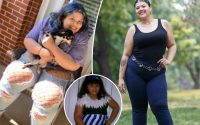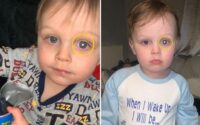Gen Z confident they could write a better self-help book than millennials, boomers
Nearly half (47%) of Americans think they could write a self-help book based on their life experiences, new research suggests.
A recent survey of 2,000 US adults discovered that youth and wisdom are not mutually exclusive, with Gen Z (81%) much more confident they could pen a book with life advice than millennials (48%) or boomers (28%).
The average person starts reading self-help books at 14 years old, but Gen Z readers (60%) are more likely than older generations to begin reading these books between ages 10 and 15.
People begin perusing the genre about three years after their first encounter with fiction.
Almost half (49%) write down their favorite quotes from books that inspired them, and the average person remembers about three of these quotes off the top of their head.
Among the most memorable sayings people recalled were “The journey of a thousand mile begins with one step,” “Slow and steady wins the race,” “Never let the fear of striking out keep you from playing the game,” “Your focus determines your reality,” and “Do or do not, there is no try.”
Conducted by OnePoll on behalf of ThriftBooks, the survey also found seven in 10 (71%) believe any book can be considered a “self-help” book if it had a profound impact on someone’s life.
What motivates people to read this genre? Wanting to overcome specific challenges (57%), improve their career (49%), gain knowledge and skills (49%) and cope with stress or anxiety (49%).
The top four self-help books that have had the biggest impact on people’s lives are “How to Win Friends and Influence People” by Dale Carnegie (47%), “Outliers” by Malcolm Gladwell (47%), “The Way Forward” by Yung Pueblo (44%), and “Atomic Habits” by James Clear (40%).
Authors whom people are most likely to associate with the self-help genre include Brené Brown (46%), James Clear (41%), Julia Cameron (36%) and Mark Manson (36%).
When it comes to sub-genres people read the most, respondents look for books containing advice on relationships (39%), motivational reads (29%), insights on social skills (28%) and parenting tips (27%).
“The self-help genre’s rising popularity shows more and more people are becoming open to it,” said a spokesperson for ThriftBooks. “Whether people are looking to improve their personal or professional lives, there are books that offer advice on just about everything, with a wide range of styles from serious to funny and quirky.”
While 74% feel positively about the self-help genre, women are more likely than men to think society has a favorable outlook on it (75% vs. 65%).
Women are also more likely to let others know they’re reading self-help books (72% vs. 65%).
Overall, though, the stigma around “self-help” seems to be subsiding — seven in 10 people (68%) are open to letting others know they’ve read self-help books.
Alternative terms for “self-help” may help continue to destigmatize the genre. The top three ways people would prefer to describe it are personal development (55%), self-empowerment (47%) and self-improvement (37%).
When looking for advice that helps them make decisions, the top two sources people look to are e-books (48%) and physical books (39%) — more so than websites and blogs (19%), social media and influencers (9%) or podcasts (5%).
And reading self-help books is not a one-and-done deal — 55% said these books have had a lasting impact on their life.
“Books remain the go-to medium for expertise on overcoming life’s many obstacles,” the spokesperson added. “A self-help book can make a great gift when the reader can relate to its author or tone. Nearly six in 10 (59%) rely on online reviews and recommendations to discover self-help books, which may help them select the best picks for others, as well.”
SELF-HELP BOOKS WITH THE BIGGEST IMPACT ON PEOPLE’S LIVES
- “How to Win Friends and Influence People” by Dale Carnegie – 47%
- “Outliers” by Malcolm Gladwell – 47%
- “The Way Forward” by Yung Pueblo – 44%
- “Atomic Habits” by James Clear – 40%
- “Chicken Soup For the Soul” series – 26%
- “Don’t Sweat the Small Stuff” by Richard Carlson – 21%
- “7 Habits of Highly Effective People” by Stephen R. Covey – 15%
AUTHORS PEOPLE ASSOCIATE WITH THE SELF-HELP GENRE
- Brené Brown – 46%
- James Clear – 41%
- Julia Cameron – 36%
- Mark Manson – 36%
- Carol S. Dweck – 26%
- Oprah Winfrey – 24%
- Dale Carnegie – 18%


